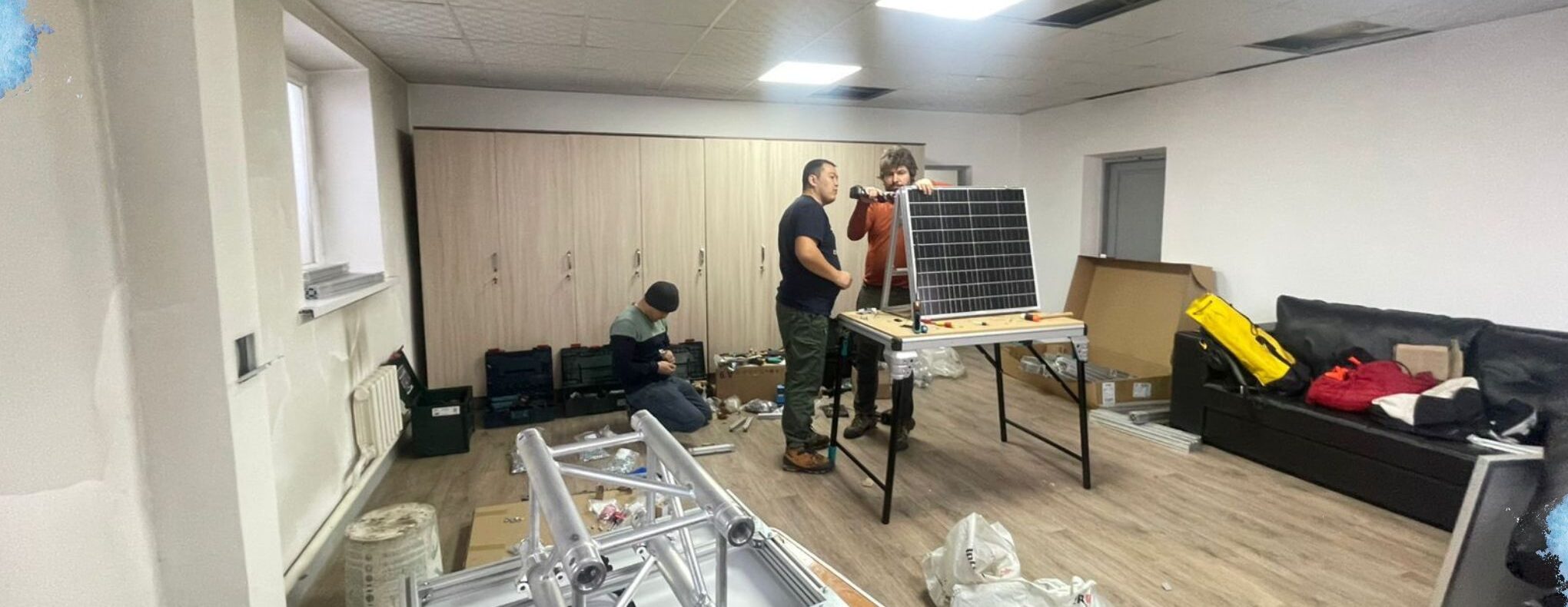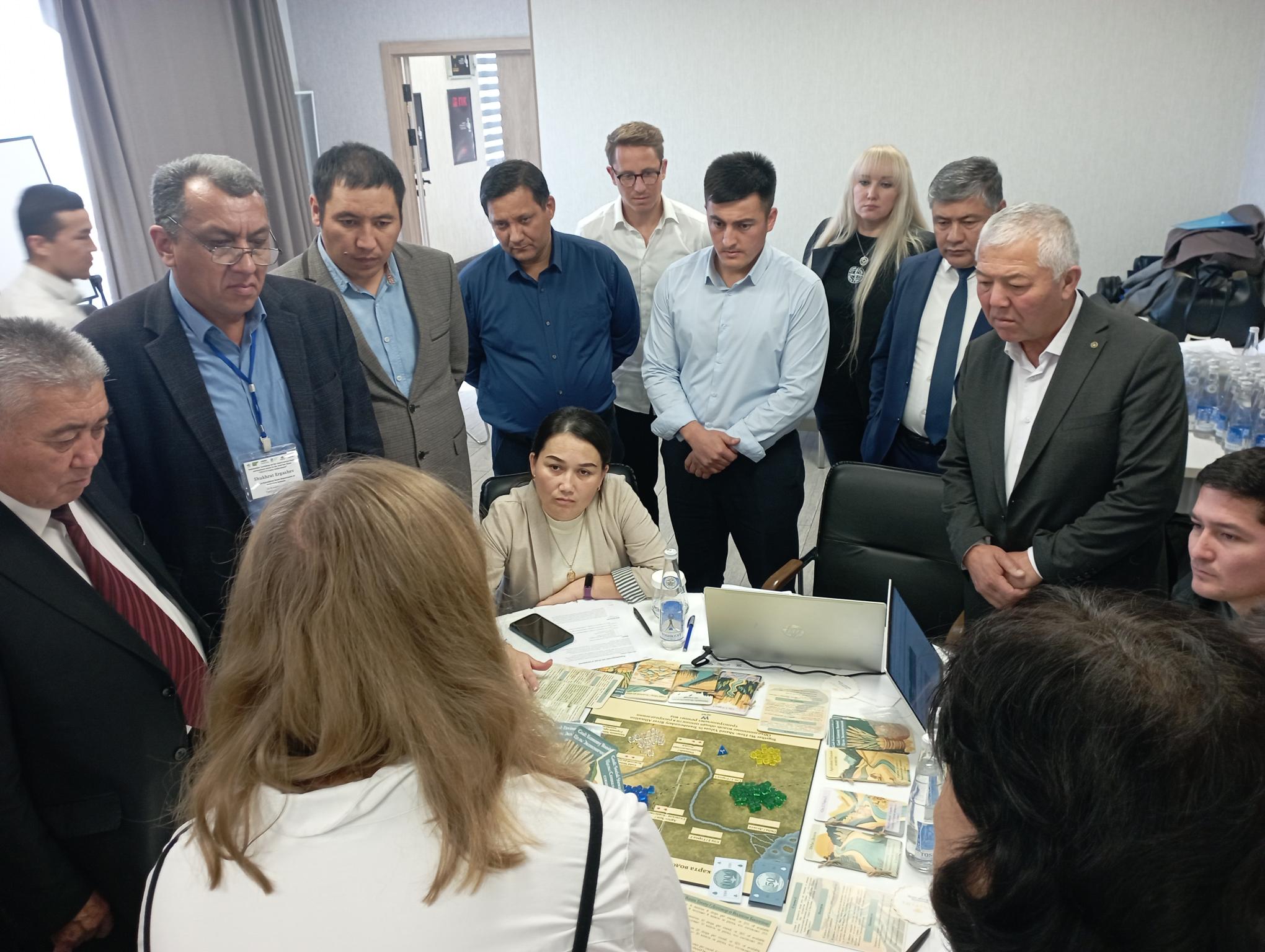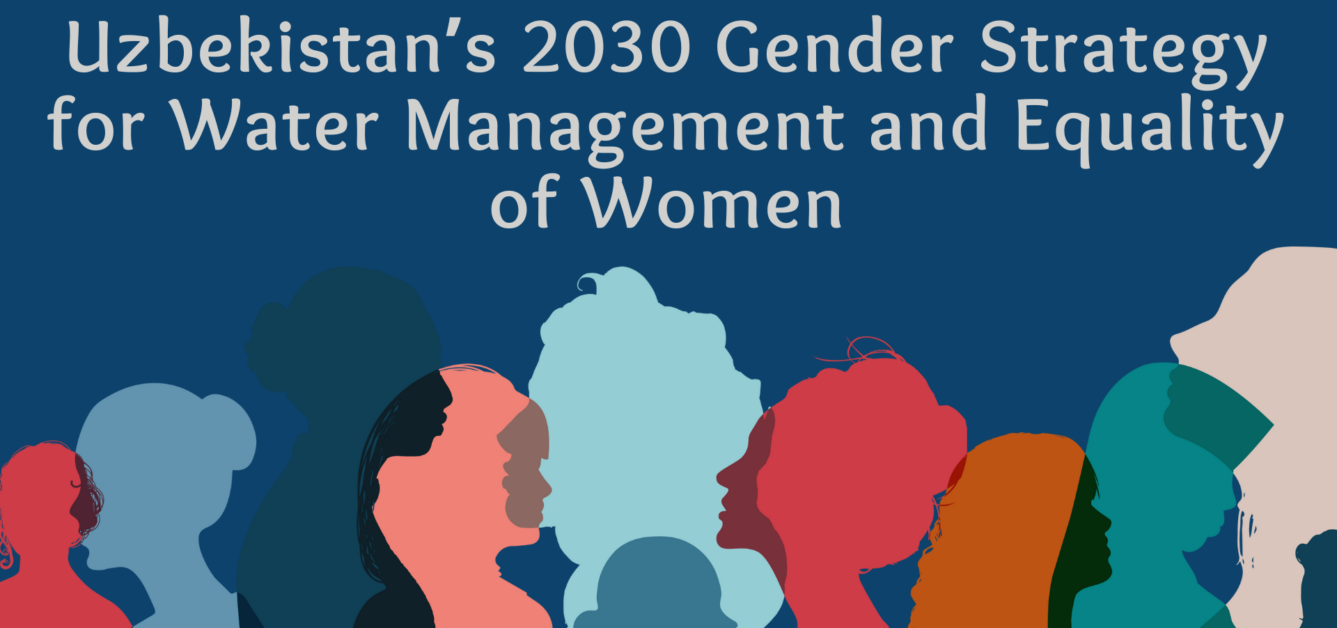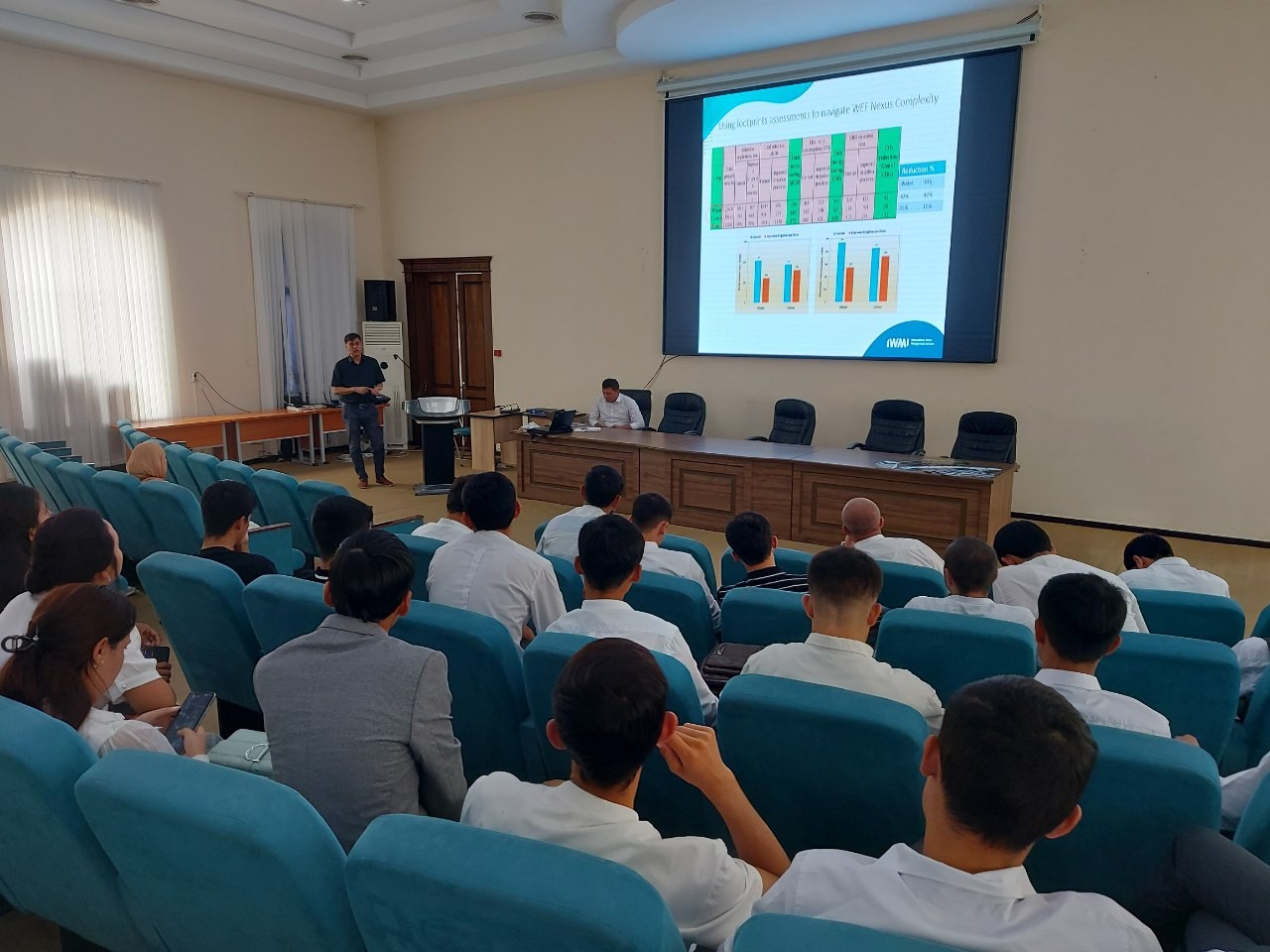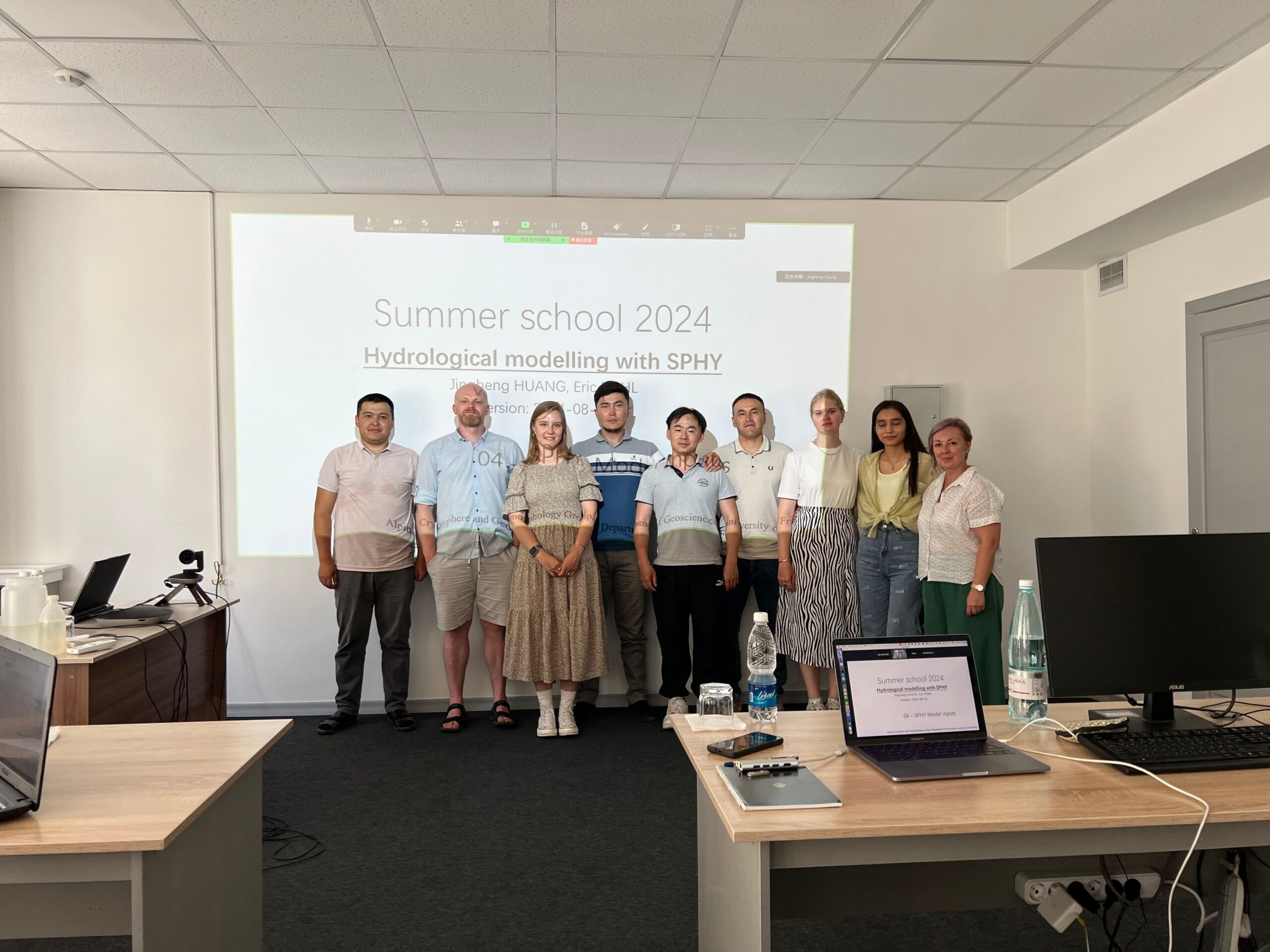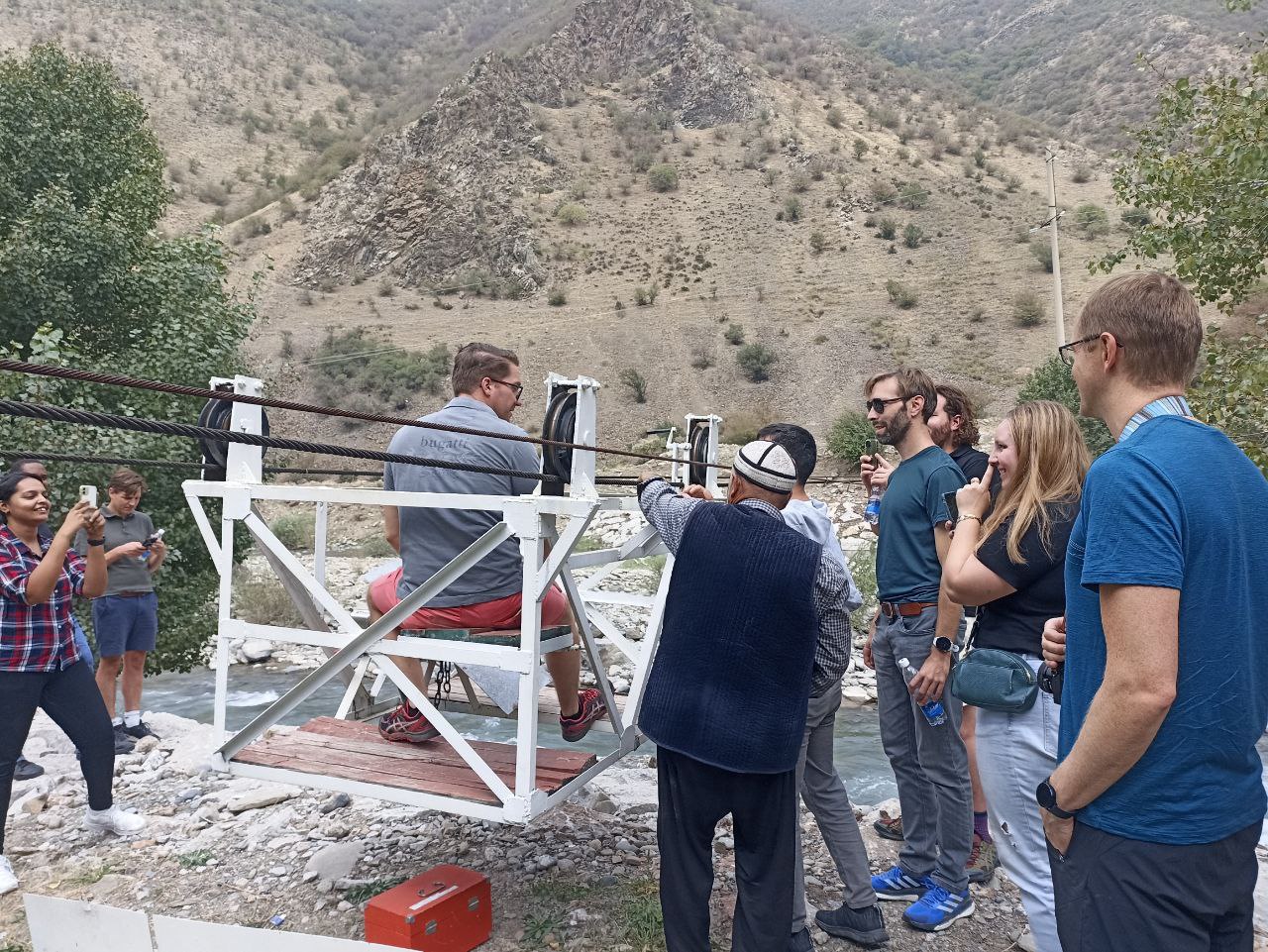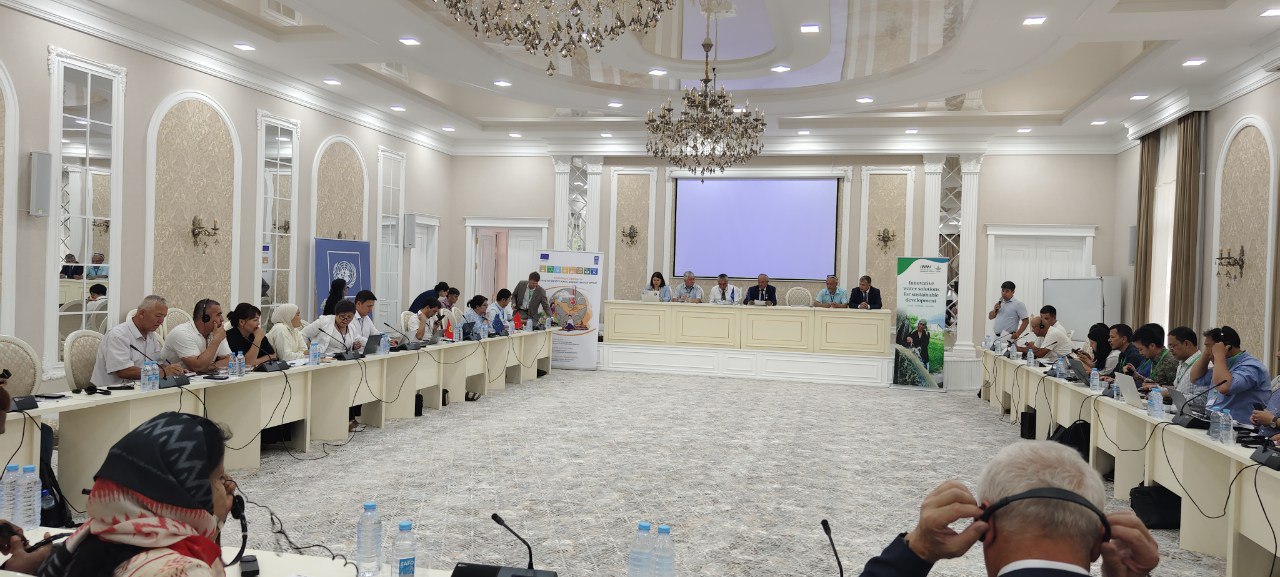The discussion kicked off with the head of the Research Department, setting the stage for dynamic discussions, followed by Drs. Bunyod Holmatov and Zafar Gafurov, who provided their insights into the future of water management. Notably, Dr. Holmatov shared his expertise on three undergoing projects—Hydro4U, WE-ACT, and NEXUS Gains—highlighting their objectives and key achievements so far.
The Water-Energy-Food (WEF) Nexus concept revolves around the interconnectedness of these three critical sectors, which are essential for sustainable economic and environmental development. Considering the global population growth driving increased demand for water, energy, and food, managing the synergies and trade-offs between these sectors has become an important challenge. Water, though abundant, is often the most strained resource, and its sustainable management is key to balancing the needs of the other two sectors.
The WEF Nexus emphasizes the need for an integrated approach, considering the cross-sectoral impacts of policy and infrastructure decisions. By adopting this framework, planners and policymakers can more effectively identify opportunities for cooperation and potential conflicts, ensuring that resource management is optimized for long-term sustainability. This holistic approach becomes even more critical as societies transition towards systems that must be resilient in the face of climate change and rising resource demands.
Attendees were deeply engaged by the discussions, particularly regarding how these cutting-edge methodologies could be applied to academic research, such as dissertation development and projects aligning with the event’s themes. The hosts also committed to supporting students and early-career researchers in their research studies and dissertation topics.
Get a better glimpse of the event’s atmosphere in the gallery below:




